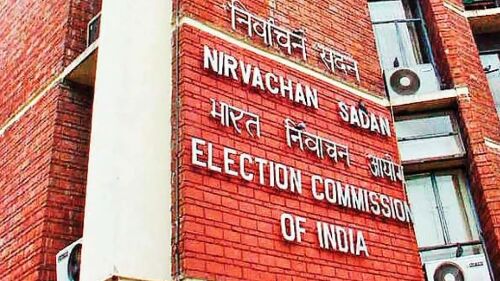At what cost?

The Election Commission has come up with corrective and preventive measures to minimize the spread of infections on the counting day on May 2. The winning candidates shall not be accompanied by more than two persons while receiving their certificate of election from Returning Officers; and obviously, the victory processions on the counting day have been banned. These little measures have, however, come too late. Earlier, the EC had banned political rallies, roadshows and public meetings with more than 500 people in West Bengal. The announcement came last week when the damage had already been done as cases peaked in the state. The announced measures of the Election Commission had very little left to deal with because over a month of vigorous campaigning in the poll-bound states has already reached its end. The EC turned its eye towards the situation after mid-April, only when daily cases reached the two-lakh mark, and fatalities were breaking records each day. It had apparently been a silent observer when political parties were violating set safety protocols recklessly and leaders and masses threw themselves in the dangerous game of victory and defeat. A more proactive response was expected from the institution of such a strong legacy and high global prestige. Being the custodian of one of the most important institutions of an election, it was the responsibility of the constitutional body to prevent 'the festival of democracy' from turning into destruction. It is no less than a shock that four assembly candidates, along with unknown faces from the crowd, were allowed to lead towards death despite warning signs. Election Commission has served over a hundred show-cause notices and lodged 76 FIRs for non-compliance with the safety protocols. It seems the efforts made by EC have failed to make the desired impact. Even if the culprits are tracked and charged, little can be retrieved from the chunk we have lost. Out-of-the-box thinking was required in a situation that is so extraordinary. Election Commission is rightly accorded a high constitutional position and power in Indian democracy. It could have made a great difference with the powers at its disposal. It has, recently, received dressing down from the Madras High Court in strong and clear words. It becomes a matter of great concern when officers of such a revered institution are warned of being "charged with murder cases" if they do not respond in time. EC could have maintained greater accountability by making voluntary interventions rather than waiting for provocations. The election period in West Bengal was more prolonged as compared to the other four states that underwent assembly elections. The state is now recording above 16,000 cases daily. The signs of the rapid surge were noticed towards the end of March itself when the number of daily cases has reached around one thousand from a low of above three hundred. As the restrictions on rallies, roadshows and public meetings have come recently, there is a possibility that the situation may continue to worsen in the coming weeks as symptoms and aftereffects of transmissions are yet to show up in full measure. Apart from the clearly indicative data, some political parties have made a sincere call to the Election Commission in wake of the rising second wave. The TMC had asked to merge the last three phases of the elections in West Bengal and Congress requested to postpone elections. These requests fell on deaf ears. The election scenario in the five states speaks not only of ignorance but also of neglect — lethal neglect. The EC turned down the requests of parties citing "legal and resource constraints". Experts, however, suggest that it was legally possible to merge elections of the last two phases. The argument of resource crunch lacks much merit as no cost can be put to the lives lost and sufferings experienced by people. Deployment of extra resources was urgently needed at the time — both to save extra cost burden in future, but also to secure the lives of people. Also, right since the announcement of the poll schedule, warnings of a possible spike in cases in Tamil Nadu and Kerala, and later in West Bengal, were given by the Centre. It may not sound surprising to many when Madras High Court asked EC if it was on "other planet" when these developments were taking place. It is, however, never too late to mend. The Election Commission and concerned political parties should mend their ways in order to control the damage that has been inflicted in the poll-bound states. The EC's decision to ban victory processions and limit the norms of reception of certificate of election is a welcome and much-needed step. It is hoped that these are strictly implemented, and great lessons are learnt from great mistakes.



